
Boston College announces a new Ph.D. program in Computer Science
We're excited to share the news that Boston College has launched a new Ph.D. program in Computer Science (CS).
The CS department's faculty includes leading experts in their fields, with an emphasis on the theory of computation and algorithmic fairness, machine learning, and data science and visualization, including applications to health, the sciences, language, and society. The Ph.D. program will provide a vehicle for us to train the next generation of computer scientists at the research frontier in these fields, with contributions to human knowledge and social good both prime considerations.
We welcome applications from qualified candidates.
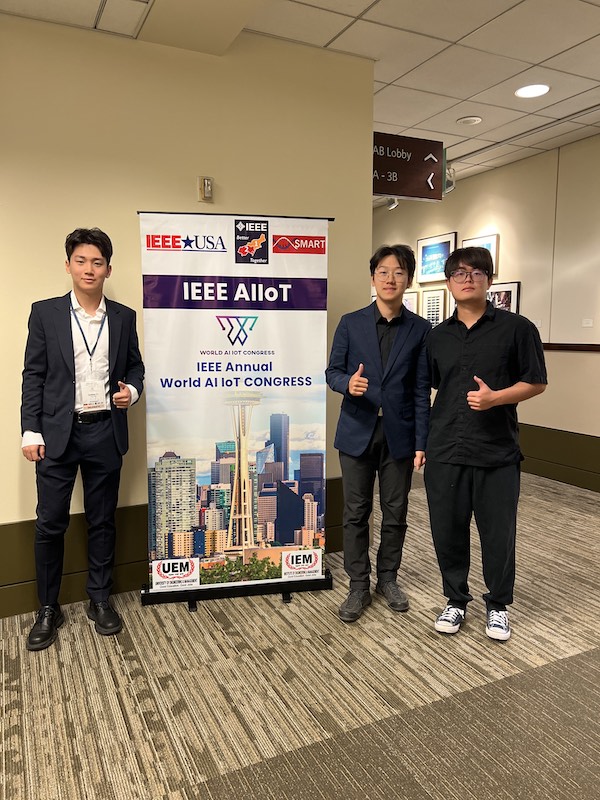
Boston College Students Successfully Present Their Work at IEEE AIIoT 2025
Boston College Computer Science students Bo Jiang, Jiaheng Li, and Zhi Xu presented their work at the IEEE World AI IoT Congress, May 28-30, 2025 in Seattle, Washington. The conference provided an opportunity for researchers, educators and students to discuss and exchange ideas on issues, trends, and developments in the related fields of Artificial Intelligence (AI) and the Internet of Things (IoT).
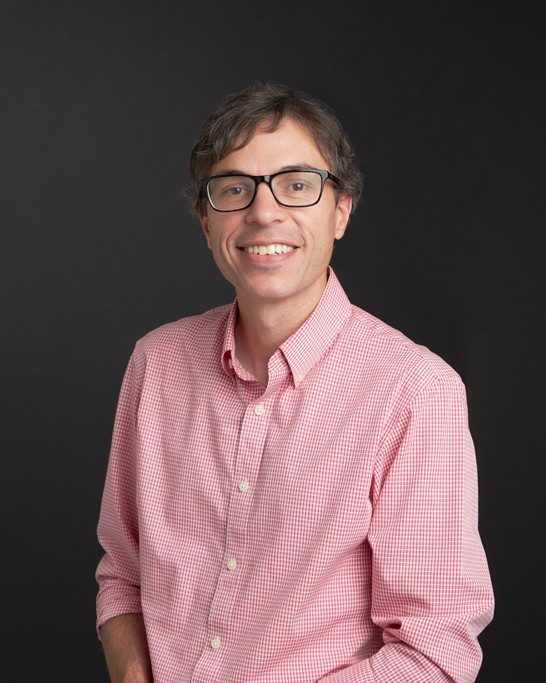
Using statistical and deep learning methods to study how crime is influenced by location and time
George Mohler, chairperson of the computer science department at Boston College, was featured in The Trace describing how statistical and deep learning methods can be used to study how crime is influenced by location and time. —The Trace, "tracing gun violence in America" [Full story]
Grace Pascarella Presents at ACM Student Research Competition at SIGCSE
Grace Pascarella (MCAS '25) presented "Extending a concept inventory - Covering CS0 - CS2 Topics" at the ACM Student Research Competition at SIGCSE. Pascarella co-authored the poster with Computer Science Department Associate Professor of the Practice Maíra Marques Samary.
"Students entering Computer Science (CS) programs are arriving at college with a varying knowledge of coding and CS. The rigid structure suggested to all, does not fit everybody. But finding the correct starting course in CS at college level is not simple, since students may not understand that CS is not only coding. The failure of a good selection on where to start the CS program can be a hindrance to students, since they may perceive that CS is not for them because it appears to be too hard, or they may perceive it as too easy and lose their interest. The General Concept Inventory for Introductory Computer Science (GCSCI) was created to tackle this problem, it can be roughly divided in two parts. In previous research authors have presented the validation of the first part, that can assess concepts that are usually taught in CS0 and CS1. This work presents the second part of GCSCI, the topics covered and its validity assessment. This part of the assessment contains 42 questions that assess topics from object orientation to data structures and sorting. All students doing CS2 in Fall 2023 were invited to participate, from the 42 questions being evaluated; 20 had a good coverage and were validated in terms of discrimination and difficulty level."
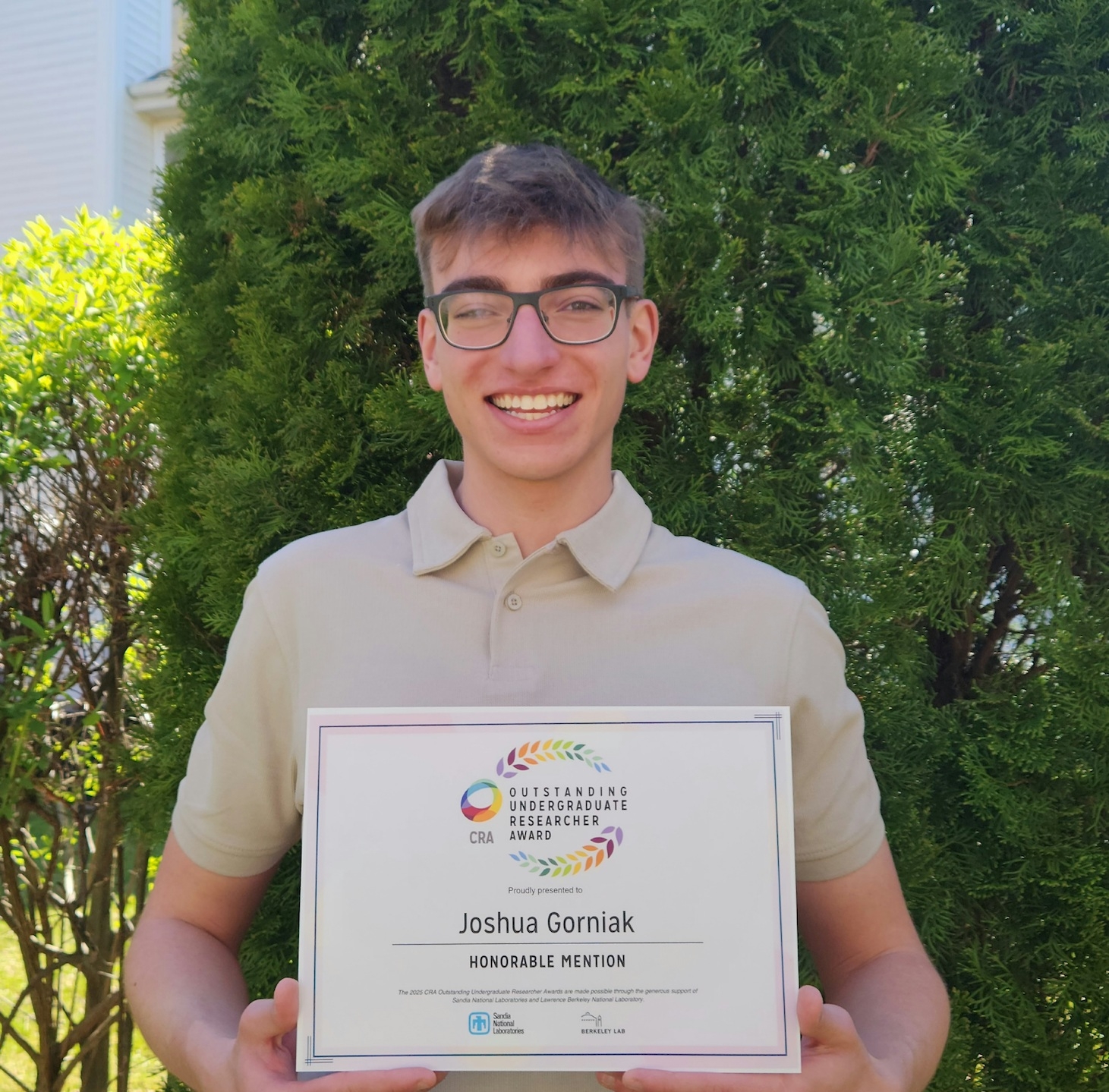
Joshua Gorniak Received an Honorable Mention for the CRA Outstanding Undergraduate Researcher Award
Joshua Gorniak, one of our outstanding undergraduate students, received an Honorable Mention in the highly competitive CRA Outstanding Undergraduate Researcher Awards program for 2024-2025. Organized by the Computing Research Association (CRA), this program celebrates undergraduate students across North American colleges and universities (e.g., the US, Canada, Mexico) who demonstrate exceptional research potential in the field of computing.
The program places a strong emphasis on research excellence while also considering academic achievements and service contributions such as leadership, teaching, and peer mentoring. Joshua’s recognition as an Honorable Mention highlights his remarkable contributions to computing research, his dedication to advancing the field, and the department's commitment to fostering cutting-edge research and academic excellence.
Congratulations to Joshua on this prestigious recognition and for representing Boston College at a national level!
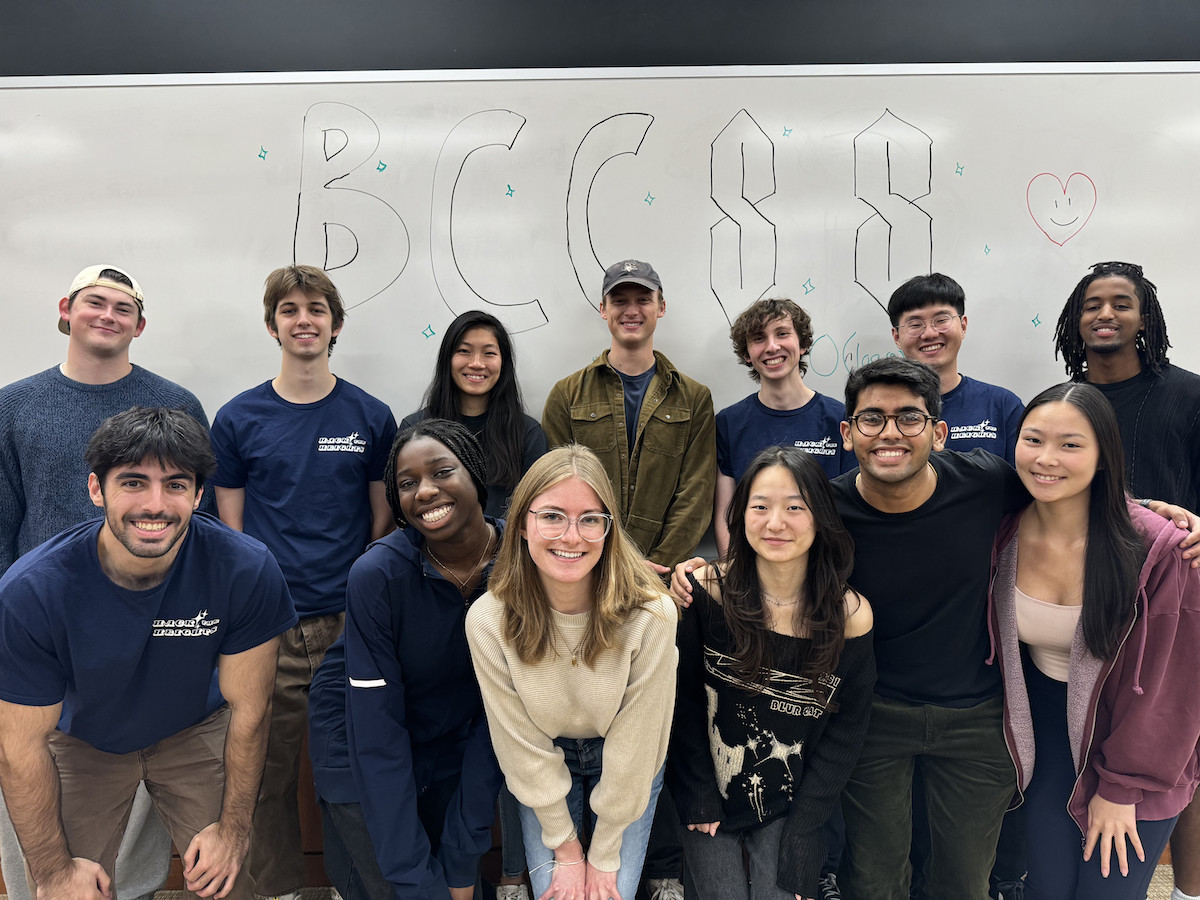
BC "Paradise Begins Here" Hackathon a Huge Success
BCCSS successfully hosted Hack the Heights 9 at 245 Beacon Street this weekend. Over 40 students across 12 teams competed in the 24-hour hackathon themed "Paradise Begins Here," focusing on small community changes for global impact.
The event featured a speaker panel with Boston College alums Will and Talia, now software engineers at Amazon and Redhat, respectively, and Google’s senior software engineer Adam Winchell. Additionally, BC's Machine Intelligence Group (MIG) held a natural language processing workshop.
Key sponsors included Cambridge Mobile Telematics and Dell. Eugene Shih, VP of Engineering at CMT, shared insights on their mission and interacted with students, distributing exciting goodies. Dell’s campus ambassadors also engaged attendees with a raffle. On the final day, students showcased their projects, with "Study Buddies"—a service tracking real-time classroom availability for BC students—winning the top prize from over $1,500 awarded. Thanks to Professors Samary and Creiner and Mr. Samary for judging.
Heartfelt thanks to all participants, sponsors, and mentors for a fantastic weekend!
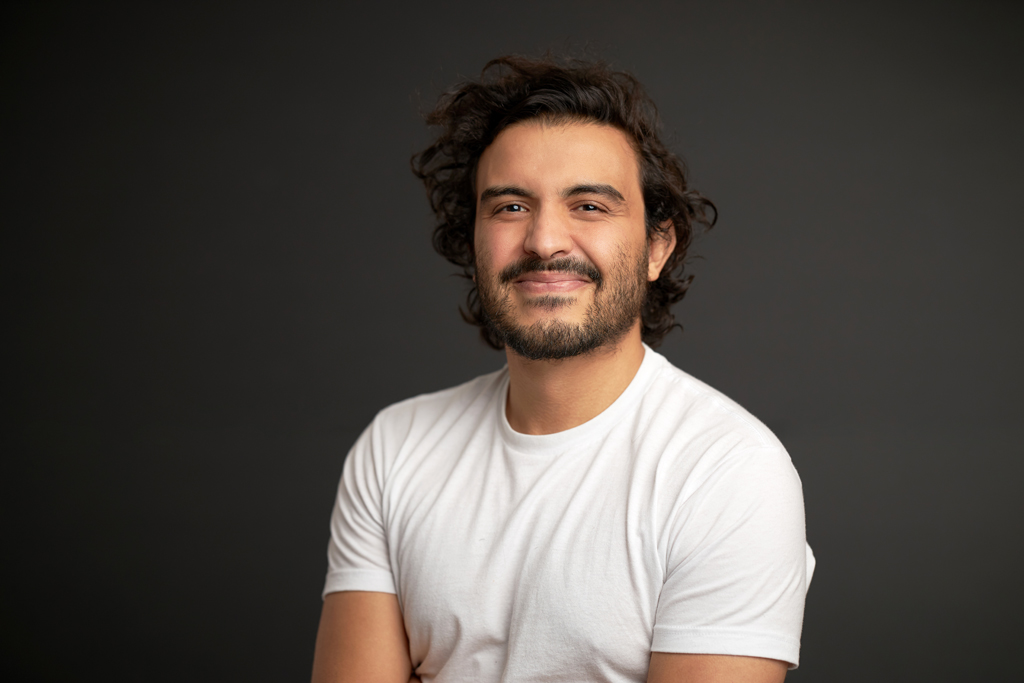
Youness Diouane and Colleagues' Paper Named DSAA2024 "Best Paper"
A paper co-authored by Boston College Postdoctoral Researcher Youness Diouane entitled “Accurate estimation of cross-excitation in multivariate Hawkes process models of infectious diseases” was chosen for the Best Paper Award for the DSAA2024 Research Track.
The best paper selection committee noted that “… the paper addresses the important subject of infectious disease modeling on the example of Covid-19 transmission data. The focus is on modeling the spatio-temporal transmission of infectious diseases in terms of a Hawkes process. Granger causality for inference is encoded in the kernel function of the multivariate Hawkes process. The problem is that of false cross-excitation, i.e. overestimating someone from NYC infecting another one in LA. Seven methods of estimating the Granger causality are inspected through three experiments, the last being real-world Covid-19 data from four counties in California. The comprehensive comparison in the paper provides a clear understanding of the strengths and weaknesses of each method, offering valuable guidance for researchers and practitioners in selecting appropriate techniques for their models.”
Congratulations to Youness and his colleagues for this recognition.
The 11th IEEE International Conference on Data Science and Advanced Analytics (DSAA 2024) will be held in San Diego, California on October 6-10, 2024.
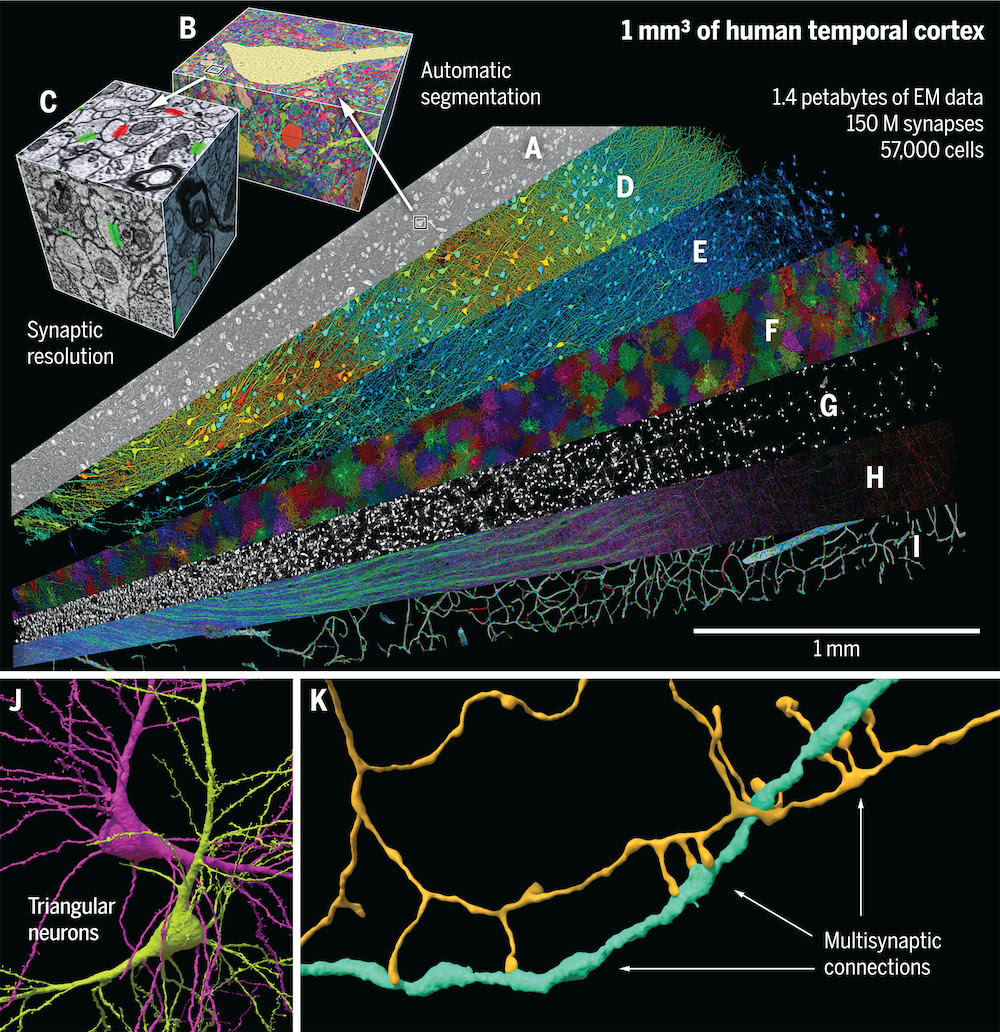
Donglai Wei Co-Authors Research Article: "A petavoxel fragment of human cerebral cortex reconstructed at nanoscale resolution"
Boston College Computer Science Department Assistant Professor Donglai Wei and his colleagues recently co-authored a neuroscience paper published in Science, the peer-reviewed academic journal of the American Association for the Advancement of Science, entitled "A petavoxel fragment of human cerebral cortex reconstructed at nanoscale resolution."
Editor's summary: "A complete understanding of the human brain begins with elucidation of its structural properties at a subcellular level. To provide a valuable resource for the scientific community and to better understand the structure of the human temporal cortex, Shapson-Coe et al. performed an electron microscopy reconstruction of a cubic millimeter of human temporal cortex. The authors produced 1.4 petabytes of electron microscopy data; classified and quantified cell types, vessels and synapses; and developed a freely available tool for analyzing these data. Their findings allowed the authors to identify previously unknown aspects of the human temporal cortex."
Paper